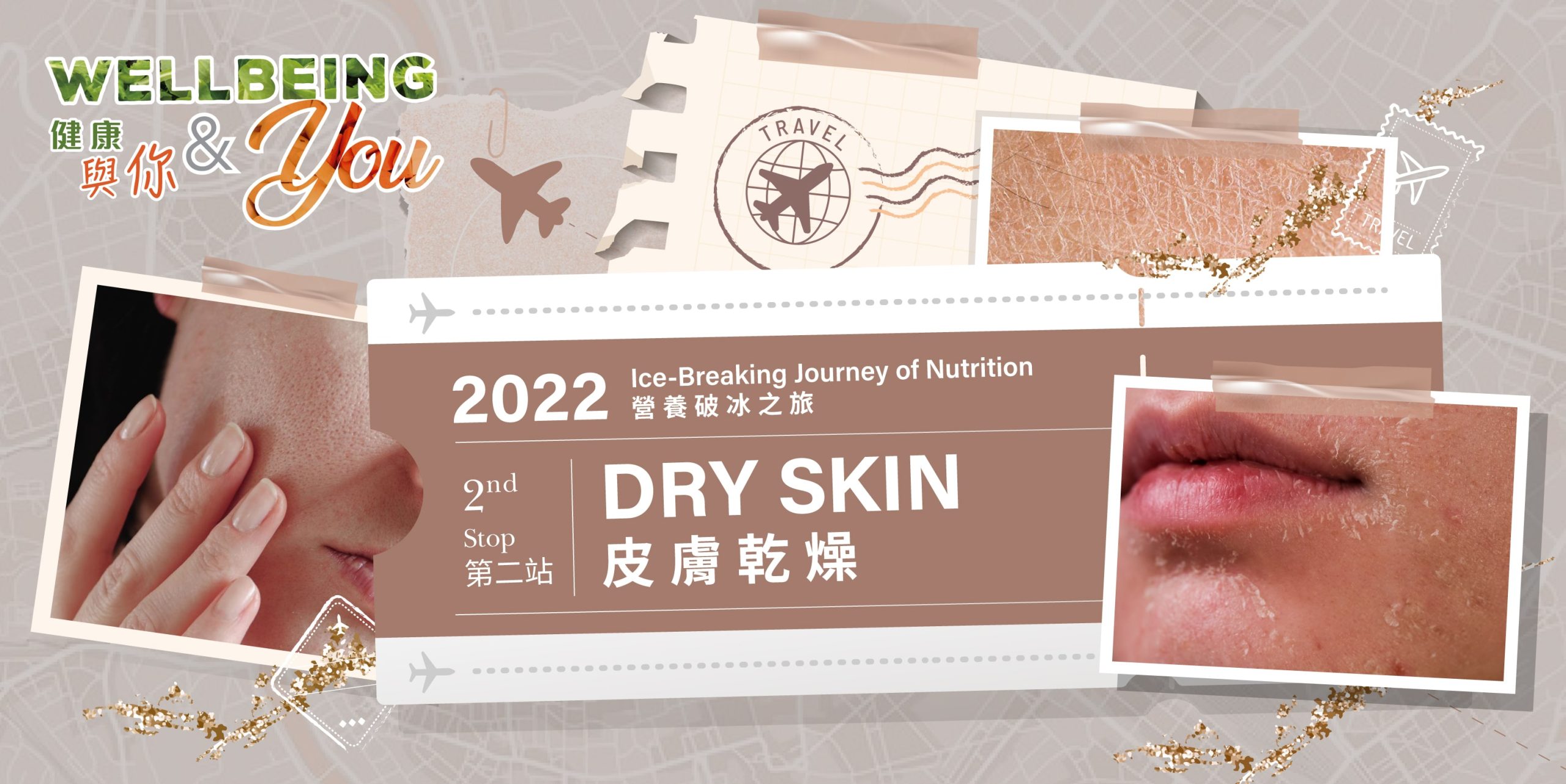[Wellbeing & You] 2022 Nutrition Ice-Breaking Journey: 2nd Stop – Dry Skin

Previously, we have finished visiting the 1st iceberg – Cold Hands, this week we will continue our journey to the next stop – Dry Skin. Dry skin has long been one of the top concerns for people either in winter or summer, not only does dry skin bother, it could also develop into serious health problem, e.g. dermatitis, if not properly handled.
Causes
| Slow metabolism and circulation | Vitamins/ Zinc Deficiency | Contact with strong soaps & detergents |
| Low humidity | Hot baths/ Heat | Heavy metal – Nickel overload |
| Gastro-intestinal problems | Excessive urination | Autoimmune: Eczema, psoriasis |
The “YES & NO”
1. Dry skin is due to the lack of water! YES, BUT…
It is true that the body is made up of more than 60% of water. Therefore, when there is a lack of water, the largest organ of the body – skin – will definitely show. While replenishing water is important, what is equally, if not more, important is the sebum level on skin, which determines skin’s ability to retain water.
2. Shall I eat more oil/fat to increase sebum secretion?
NO, BUT…
Sebum secretion involves a complex mechanism, which involves a wide range of hormones (e.g. sex and stress hormone). In addition, sebum contains more than just oil/fat, but also wax esters, squalene and also cholesterol. Eat more fat alone may not be the wisest choice as it could possibly lead to unwanted weight gain. However, it is good to eat a balanced diet including key vitamins and minerals to skin health (see the “Do” list below!).
| ✔ DO ✔ | ✘ DON’T ✘ |
| Water-rich foods: Fruits: Watermelon, snow pear, cantaloupe, orange Vegetables: Cucumber, zucchini, celery, tomato Others: Broth, noodle soups, congee | Possibly dehydrating foods: Bakery products Fries Chips Alcohol Processed meat |
| Vitamin-rich foods: Vit A&B: Liver (Beef/Pork/Chicken) Vit C: Orange, Guava, Lemon Vit D: Mushroom, egg, milk Vit E: Extra Virgin Olive oil, abalone, octopus | Extremely low-carbohydrate/-fat diet, which deplete the body’s water storage and sebum level. |
| Taurine-rich foods: Oyster, Octopus, scallop, squid, sole | Excessive tea/coffee, which is diuretic and dehydrating |
| Zinc-rich foods: Oyster, beef, chicken | Oil-removing skin-care/ baths products |
| Fat-soluble antioxidant intake: Squalene, Vitamin E, Co-Q10 | Body scrub/alcohol sanitizer, which rubs off the natural sebum on the skin. |
| Topical use of Vitamin E oil, cocoa butter, Aloe Vera, coconut oil, niacinamide | Long-term/overnight use of room heater |
Reference
American College of Rheumatology, University of Utah, Mayo Clinic, Johns Hopkins Medicine, National Health Service, National Institute of Health, PMID: 9464451, 2921306, 26894086, 16676119, 17898493, 30666166, 31343948, 27069497, 23204610, 29430626, 20224686, 28274349, 33898702


